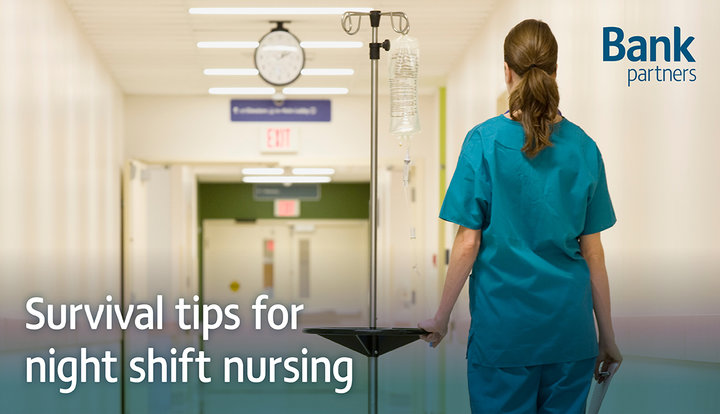
Night shifts, often known as the graveyard shift, require you to be working away whilst the rest of the world slumbers. Providing high quality patient care, throughout the night when many of your patients will be sleeping.
Whether you are on a patient specialling shift, or working with a number of patients across the ward, night shifts can be complex. How do you stay awake when the person, or people you are charged with monitoring, are fast asleep?
Luckily, we have some top tips which are tried and tested by our fantastic staff. These will not only help you stay awake on your night shift, but you may end up looking forward to them!
Sleep Sleep Sleep
Getting enough sleep is vital to staying awake on a night shift but sleeping whilst everyone else is still awake can be quite an adjustment. Although individual people will vary, most need one hour of sleep for every two hours awake, or approximately eight to nine hours of sleep each night. According to “Working the night shift: preparation, survival and recovery” a guide by Nicholas Horrocks MSc and Roy Pounder MD DSc FRCP for junior doctors:
“If you manage less than this (as occurs in shift workers, who have sleep of poorer quality and shorter duration than non-shift workers) then you will incur a ‘sleep debt’. This sleep debt is cumulative, so the more sleep you miss, the greater in debt you will be. A fundamental aspect of being a successful night worker is learning how to manage your daytime sleep (and fatigue at night) so that you keep your sleep debt to a minimum.”
When settling down to sleep at a time when most are awake you need to make sure you create the best environment for it. Ensure your phone is on silent, the room is dark and those around you are aware so they can stay quiet. If you don’t fall asleep after 30 minutes, go into another room and do something to distract yourself for a short time before going back and trying again.
Take Your Scheduled Breaks
You’ve probably heard this a thousand times before, but don’t skip your breaks. Especially on a night shift, these are vital for keeping you alert. During your break try to get fresh air or a change of scenery. Whether this is going for a brisk walk outside the ward or sitting in a room with an open window. Both these factors will contribute to keeping you awake and alert.
During your breaks, and even throughout your shift, ensure you are exposed to bright lights. This could be a desk lamp or normal overhead lights. Exposure to bright lights has an alerting effect on the brain and is proven to improve performance. Even intermitted light exposure (for example on your breaks) has been found to be nearly as effective as continual exposure. (A study on the effects of bright light at night.)
Remember to eat
Try to eat a full meal before your shift. This mimics having breakfast before you start a day shift and can reduce the chances of you getting heartburn or feeling bloated. Take nutritional, healthy snacks with you. Snacks like bananas are great for slow release energy to keep you going throughout the shift.
There is some evidence that suggests that high-protein low-carbohydrate meal is best for maintaining night shift alertness so keep this in mind when planning meals!
Stay hydrated
It is so easy to forget to drink when on the night shift, but the European Food Safety Authority recommends that the minimum water consumption should be two litres for men and 1.6 litres for women, which is roughly between 6-8 glasses.
A study of hydration levels of clinical staff at an NHS hospital found that 36% of participants were dehydrated before they had started their shift. Using urine samples and short-term memory tests, the study also found that 45% of participants were dehydrated at the end of their shift, and that cognition was significantly impaired in dehydrated participants (El-Sharkawy AM et al., 2016).
Dehydration can lead to you feeling sluggish, unable to concentrate, headaches and dizziness. In contrast being properly hydrated can increase energy levels, help you to feel full and have a positive effect on your mood.
Night shifts can seem intimidating at first, but they are actually hugely beneficial for growing your skills and allowing you the opportunity for new experiences within your role.
If you’d like to find out more about working night shifts with the staff bank, get in touch with your local staff bank team here.